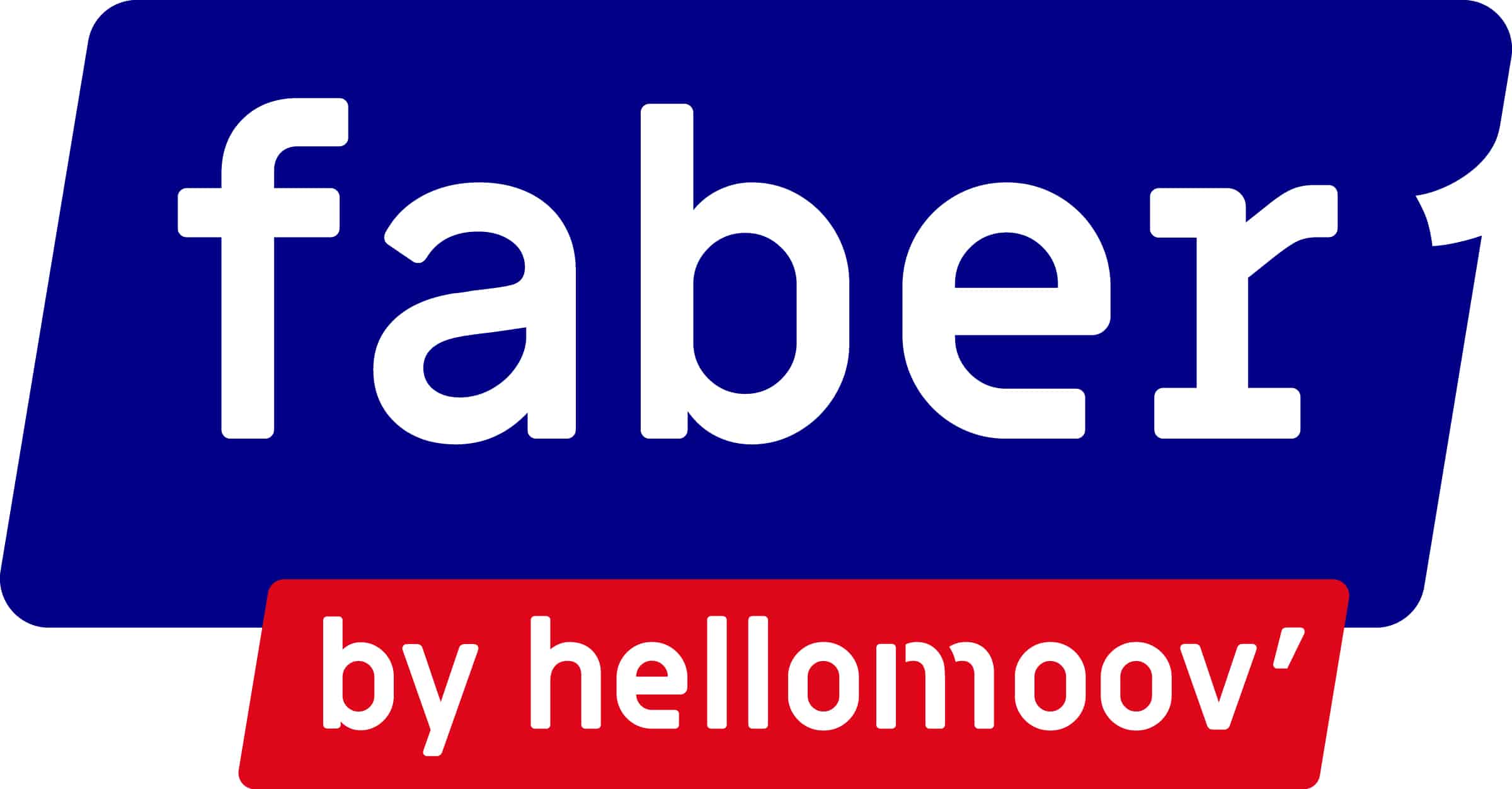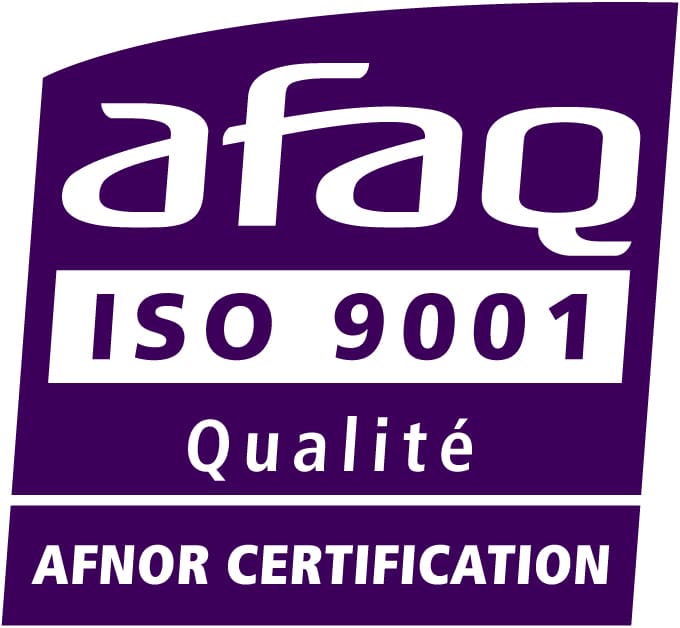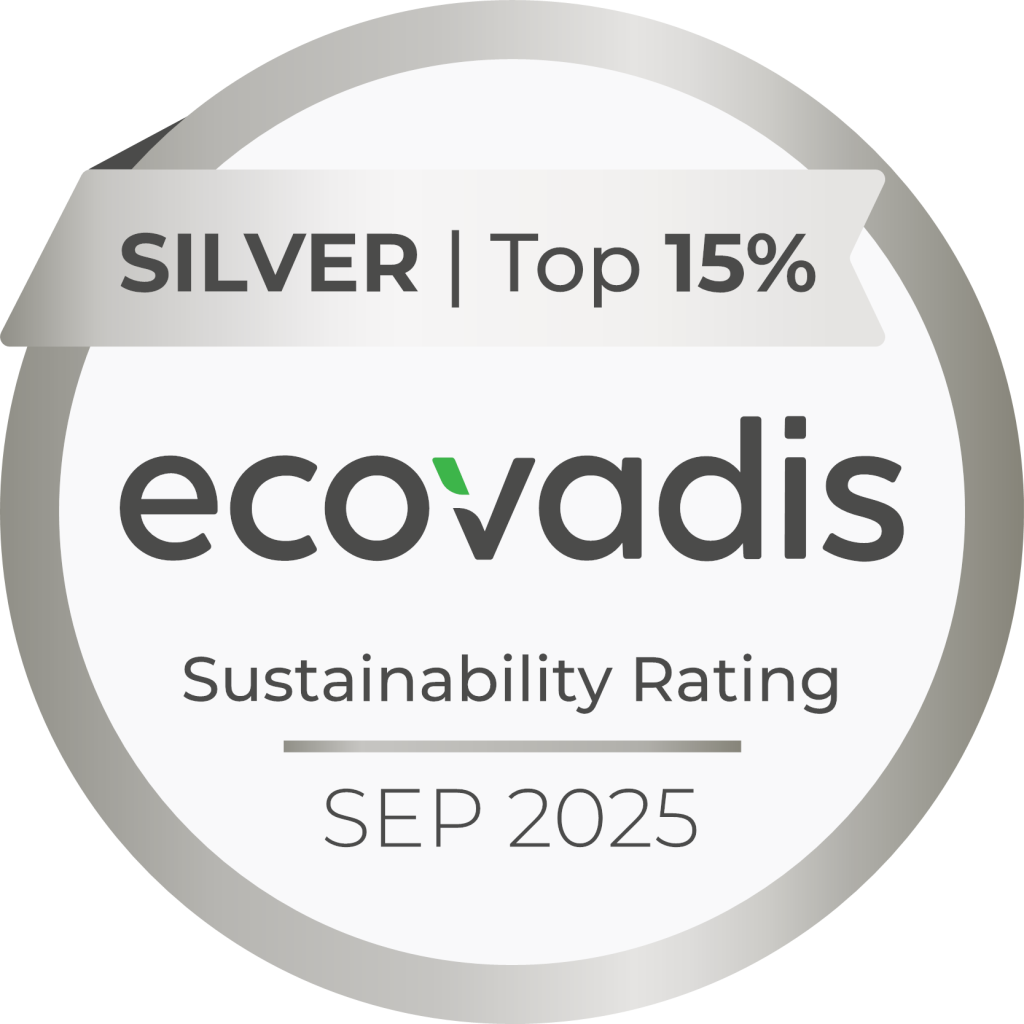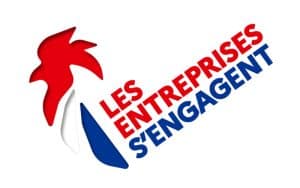Corporate Social Responsibility
At Faber, we firmly believe that a CSR (Corporate Social Responsibility) strategy is essential for a sustainable future. We can all make a contribution! That’s why we are committed to a CSR approach, with a long-term vision of continuous improvement.

FABER COMMITTED
FABER COMMITTED
FOR TOMORROW
What is CSR?
CSR refers to the commitment of companies to integrate social, environmental and ethical issues into their practices and activities, over and above their legal obligations. It is a voluntary approach that aims to make a positive contribution to society, while creating sustainable value for the company’s stakeholders.
- Why is CSR important?
Through CSR, we can meet the growing expectations of consumers, partners and employees in terms of sustainability, transparency, respect for human rights and respect for the environment. It is also a driver of innovation, competitiveness, and customer loyalty.
- Our CSR vision
Our CSR approach is based on the idea that our actions should benefit our customers, our employees, the community and the planet. CSR is the strategic common thread that reflects our core values and is integrated at every level of our corporate policy to ensure sustainable development.


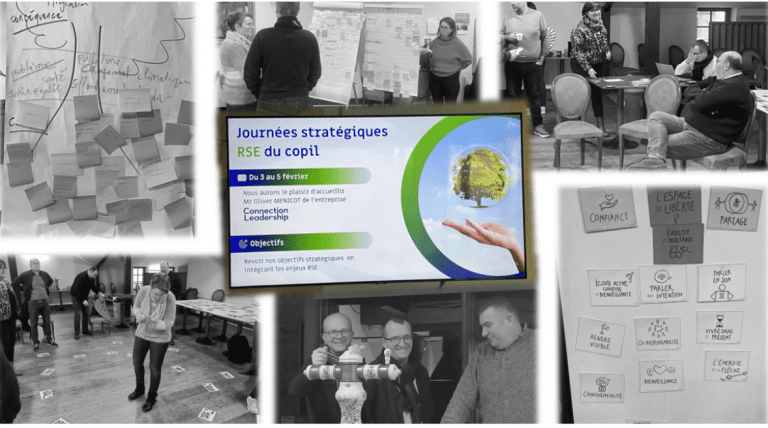
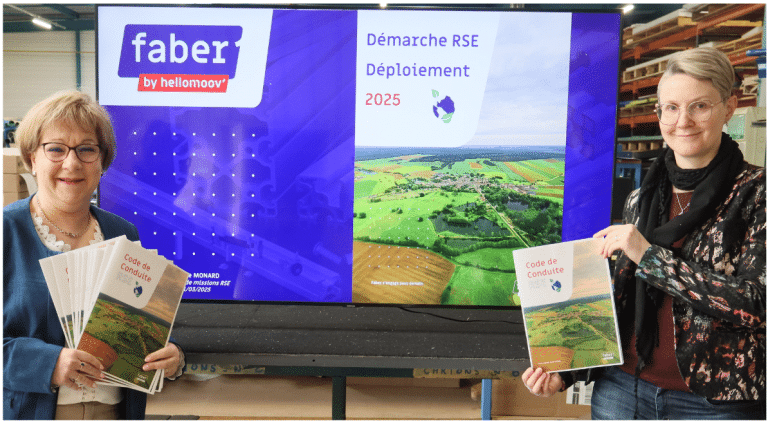
Building our CSR approach
In order to implement relevant actions, we have carried out a number of assessments to evaluate our current situation and gain awareness of our impacts, risks, and opportunities.
Following on from this, we have identified our priority ESG (Environmental, Social and Governance) issues and our objectives for improvement, as well as our areas of work.
We also encourage our relevant stakeholders (employees, customers, suppliers, partners, associations, etc.) to get involved with us through our CSR Code of Conduct / Responsible Purchasing Charter.
And even though we are not currently subject to the CSRD regulation (extra-financial reporting), we see it as an opportunity to push our CSR ambitions even further.
Some examples of concrete actions
In addition to the regulatory indicators and obligations, which we obviously comply with, here are some examples of actions/monitoring that we have put in place:
Quality and sustainable products
We offer modular product ranges that can be customised, upgraded and reused, using sustainable technical materials.
The market is evolving rapidly, and we are constantly on the lookout for new regulations, raw materials and components, as well as technical developments and innovations, in order to improve the quality of our products and increase their lifespan, while reducing our impact on the environment.
- Our R&D department is constantly improving our products:
- Regularly testing new products and materials to reduce the energy consumption of our conveyor lines
- Increasing the proportion of recycled raw materials in our products
- By optimising the capacity of our conveyors (e.g. possibility of larger lines with the same motor)
- We also take part in exhibitions and hold regular events, which you can follow on our Linkedin page.
- Development of services:
- Preventive/curative maintenance to extend product life
- Rental equipment on request
Social & Human Rights
- Carrying out a QWL (Quality of Working Life) diagnosis leading to working groups with our employees.
- We have developed partnerships with France Travail (French Unemployment Office) and local associations (notably AAPH, The Ardennes Association for the Promotion of the Disabled) to promote diversity, inclusion, and the integration of individuals facing challenges in returning to employment. We are particularly committed to the employment of people with disabilities—a major societal issue for us. Our rate of employees with disabilities exceeds the legal requirement.
- Monitoring of employee training, detailed by socio-professional category and gender, to ensure equal access to knowledge for all.
- Organisation of social events for all staff, including team-building days, summer barbecues and end-of-year drinks.
Environment & Responsible Purchasing
- Carrying out a carbon assessment and identifying our main impacts, to define our carbon reduction targets.
- Optimization of our waste management by working on several fronts
Reducing our waste:
– By controlling the consumption of our raw materials through the nesting of parts within the same material format and by optimizing scrap material
– By reducing our production rejects
Maximizing the separation of different plastics to improve sorting of each material at the end of production and enhance the recovery of recyclable materials
Seeking new local recycling channels to reduce the carbon impact related to transportation
Favouring energy recovery channels over landfill for ultimate waste
- Integration of recycled raw materials (RRMs) into our products and packaging: plastics, aluminium, cardboard, etc.
Governance & Ethics
- Integrating CSR as a guiding principle of our corporate policy
- Establishment of a CSR Code of Conduct reflecting our commitments and expectations
- Creation of a Responsible Purchasing Charter outlining our requirements, intended for our suppliers, subcontractors, and service providers
A committed and certified industry
A question?
Feel free to call on us to make you a quotation or to arrange for an expert assistance to help you achieve your projects
